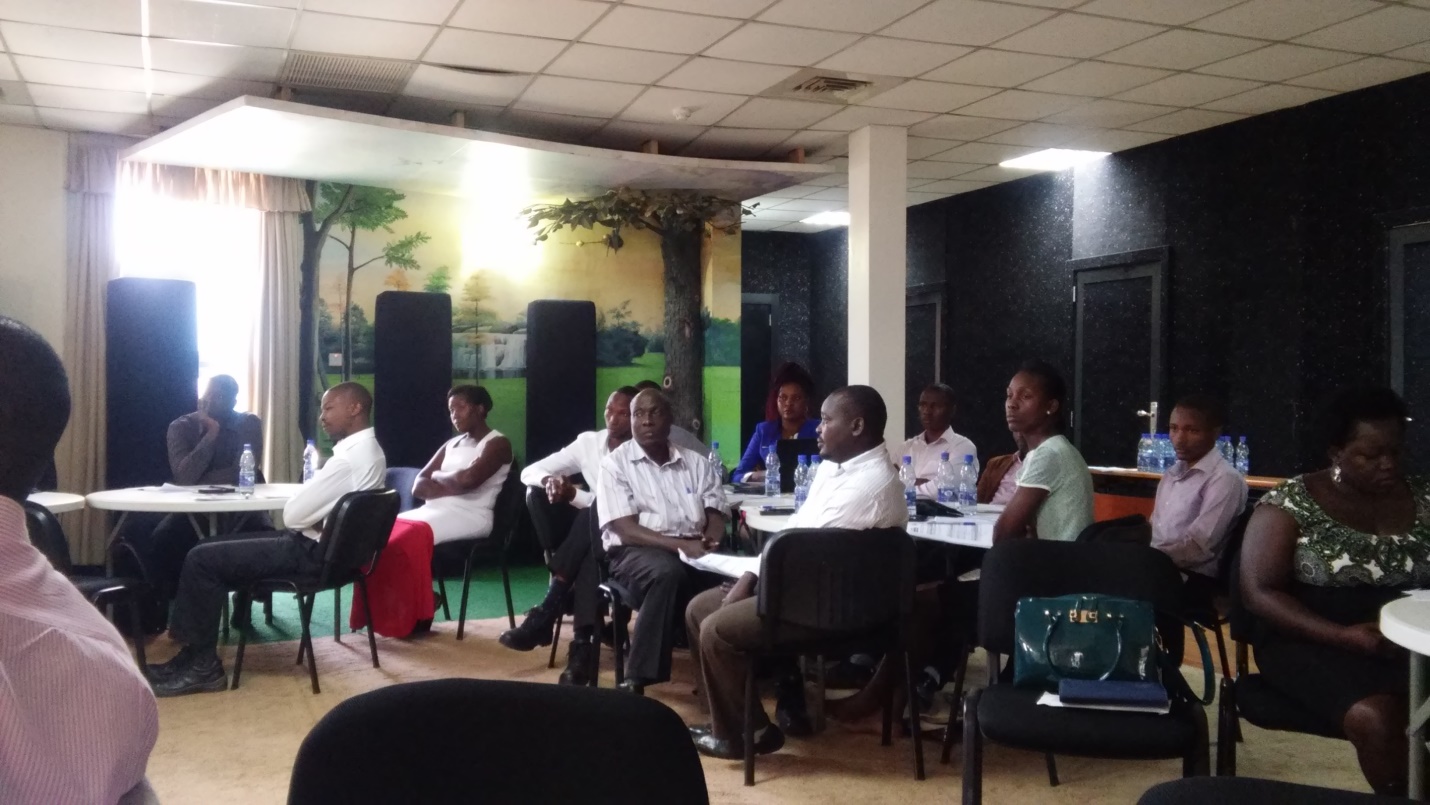It is against the above background that Global Water Partnership (GWP) Eastern Africa in collaboration with Uganda Ministry of Water and Environment and CAPNET, conducted a 5 days training on MAINSTREAMING WATER SECURITY AND CLIMATE RESILIENCE INTO CATCHMENT BASED PLANNING PROCESSES from 28th September to 2nd October in Kampala, Uganda.
Attended by about 40 participants, the purpose of the training was mainly to equip the YWPs with technical skills that will enable them mainstreaming water security and climate resilience into catchment based planning process. The training was further aimed at strengthening both human and institutional capacity in this area.
The training has covered a number of thematic areas such as introduction to IWRM, Water Security, Climate Change, Catchment planning and water source protection guidelines, IWRM and Water Integrity, Climate resilience frameworks of the Nile basin countries as well as practical case studies on Implementation of Catchment based IWRM Plans. As part of the training, the YWPs visited the NWSC Gaba Water works to experience first-hand, the challenges that NWSC faces in providing potable water to the city, as a result of climate change.
During the training, the YWPs discussed their own experiences relating to the climate change challenges and IWRM efforts across the country.
At the end of the training, participants voiced their appreciation to GWP, NILE-IWRM, and the Ministry of water and environment for the skills and knowledge gained. The participants also came to the realization that climate change is unavoidable and will continue to negatively affect all countries of the world; poorer countries in Africa like Uganda are more vulnerable to the negative effects of climate change; because of their small economies, there is no action which African countries can take on their own to reduce global warming and therefore there is need for a concerted international effort; and finally, the best for Africa is to prepare to adapt to the inevitable impacts of climate change.
YWPs in general resolved to increase their participation in supporting the water sector by incorporating the four Dublin principles (adapted from the Dublin Statement on Water and Sustainable development) which they learnt during the training, in their efforts to mitigate climate change impacts in Uganda.
Photo: YWP Members listen attentively to a facilitator during the training
